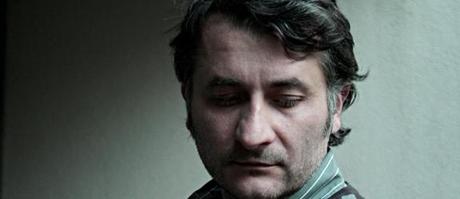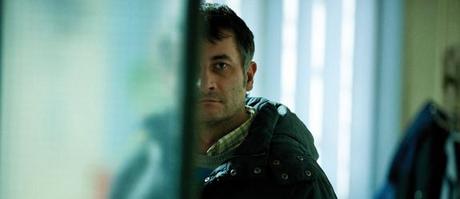09 de Julio del 2013 | etiquetas: Cine Social, Política
Twittear
Si una obra maestra del calado de "La muerte del Sr. Lazarescu" (ver online) era la primera, "Aurora" (ver online) es la segunda de las seis historias que Cristi Puiu ha enmarcado en un portentoso homenaje dedicado al difunto maestro, Eric Rohmer. “Seis historias sobre los suburbios de Bucarest” que tratan “seis historias de amor” en honor a los “Seis cuentos morales”. Si la primera entrega versaba sobre el amor al prójimo, o mejor dicho, sobre su ausencia en una burocracia despersonalizada, y la segunda lo hace sobre el amor conyugal y su ausencia en el hogar, ¿de que nos hablará la tercera, que ya prepara?
Es "The Manor House", la nueva entrega de un realizador que, con un proyecto, o lo que es lo mismo, con una futura filmografía de seis films, promete culminar una de las obras más grandiosas y contundentes de la historia del cine de autor contemporáneo. El ecuador de tan enriquecedor periplo, que comenzaba con uno de los títulos más aclamados del S. XXI y proseguía con la explosión de violencia más cadente y estimulante jamás experimentada en la gran pantalla, lo marcará un drama protagonizado por un senador y un terrateniente que se juntan con los amigos para salir de caza y montarse su propia 'fiesta' debatiendo acerca del mundo, su historia y la religión, entre muchos otros temas.

De buenas a primeras, imaginamos la nueva cumbre de un cineasta que en esta ocasión promete desempolvar las altas esferas a través de la ausencia de amor que luce en ellas. En definitiva, uno de los grandes títulos previstos para el 2014. Todo un regalo (y marcado en negrita).
THE MANOR HOUSE por Cristi Puiu
"Aurel Moiş, a Liberal senator and large landowner from Vlaşca and Romanaţi, has placed his country estate at the disposal of some friends for a hunting party. As the manor house is spacious and Moiş is a man of the world, his estate at Argeşelu is soon filled with high-society guests, boyars, officers, folk musicians, and merriment. But Moiş is not there merely to host a hunting party. There are murkier reasons for his sojourn at the manor house at that precise moment.
Among the thirty guests are law professor Iosif Moiş (Aurel’s father), a French Marquis, and a Russian General. And given that for various reasons not all the guests are inclined to join the hunt; those who remain behind at the manor house pass the time by engaging in a long discussion about death and the Antichrist, progress and morality. As the discussion gradually takes shape and the various topics are broached, each of them – the General, the Marquis, the Professor – lays out his vision of the world, history, and religion.
The hours pass, the discussion becomes more heated, the topics become more and more serious, and differences of culture and viewpoints grow increasingly apparent. Meanwhile, in the background, we glimpse the disquiet of their host, Aurel Moiş, and the mystery surrounding the messages he sends and receives all the while.
Whether for good reason or not, the guests end up exacerbating each other’s anxieties to the point that their conversation begins to be sorely strained. Finally, falling into the snare of their own discourse and believing that history never repeats itself, neither the General, nor the Marquis, nor the Professor are able to realise the extent of the event in which they have unwittingly come to be trapped".
